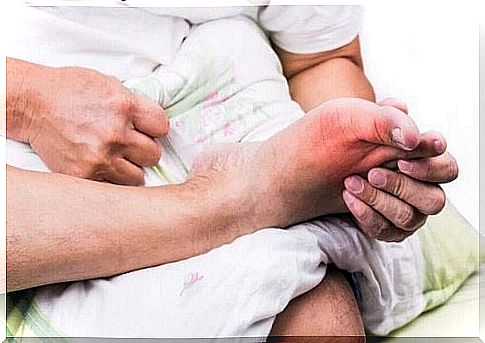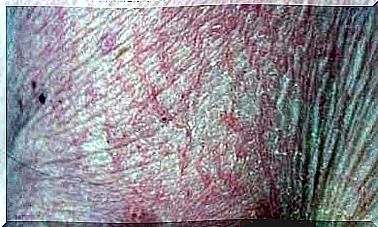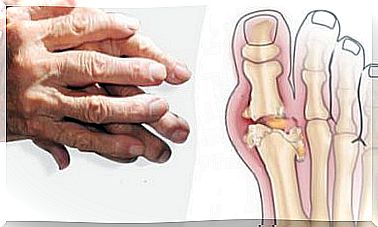Treatment Of Gout With Allopurinol: Indications And Side Effects

With allopurinol, goals such as treating gout and controlling the level of uric acid in the body can be achieved . It is prescribed when gout is a side effect of other medicines (for example, those used to treat cancer or kidney stones).
The action of allopurinol is possible due to its ability to reduce the synthesis of uric acid, which is responsible for triggering the clinical symptoms of gout. In this way, allopurinol is part of a family of drugs called xanthine oxidase inhibitors. Xanthine oxidase is an enzyme required for the synthesis of uric acid. Below, we will present this process in detail.
But it is important to remember that allopurinol cannot cure gout attacks. It is a preventive method for patients who are already being treated with other medicines, such as those mentioned above.
What is gout?

Gout usually manifests itself as an acute inflammation of the affected joint – most often, that of the big toe. In other words, gout produces asymptomatic inflammation in a joint, which swells and which, for a short time, is accompanied by pain.
That inflammation is the consequence of the presence of monosodium urate crystals. This substance signals an excess of uric acid in the blood. High levels of uric acid tend to be associated with unhealthy habits, such as inadequate diets or alcohol consumption. If these levels normalize in a sustained manner, the crystals will dissolve without any problems.
The diagnosis of hyperuricemia is made in patients with high uric acid levels. Although this disorder is widespread (7% of men are affected), only a small proportion of patients will develop gout-specific crystals.
Following a gout attack, several monosodium urate crystals remain in the joints. Therefore, another gout attack could occur at any time after the end of treatment.
Side effects in the treatment of gout with allopurinol
Side effects are more common in patients with kidney or liver problems. The cause of this phenomenon is that allopurinol is metabolized in the liver and eliminated by the kidneys. Depending on the health of these organs, the concentration of the drug in the body may increase.
As the concentration of the drug increases, so does the patient’s risk of experiencing side effects. Here are the most unpleasant side effects of allopurinol:
Skin reactions

This is the most common side effect and can occur at any stage of allopurinol treatment. Possible skin reactions include:
- itching
- Skin peeling
- Purple lesions
- Skin exfoliation
- Rash
If you experience the first four symptoms, it is advisable to stop treatment with this medicine. You can resume it after you have recovered, gradually increasing the dose. If you notice rashes, discontinue treatment.
Generalized hypersensitivity reactions
Rarely, patients may experience hypersensitivity reactions such as:
- Fever
- Stevens-Johnson syndrome and Lyell’s syndrome
- Lymphadenopathy
- Vasculitis (can manifest in several forms, including hepatitis, nephritis or epilepsy)
If you experience any of these side effects, you should stop allopurinol treatment immediately and permanently. In such cases, your doctor will most likely prescribe corticosteroids to reverse the symptoms of generalized hypersensitivity.
Gastrointestinal disorders

The most common digestive reactions that occur in the treatment of gout with allopurinol are nausea and vomiting. To avoid them, never take this medicine after meals.
Granulomatous hepatitis
This adverse reaction rarely occurs in the absence of obvious symptoms of generalized hypersensitivity. As soon as treatment is stopped, the problem will go away.
conclusions
Allopurinol is very effective in preventing gout attacks caused by other drugs. It is only issued with a prescription, which is why you should not take it without the advice of a specialist. If not used properly, serious health problems can occur.
Consult a doctor or pharmacist if you are unsure or for more information about the side effects of allopurinol.









